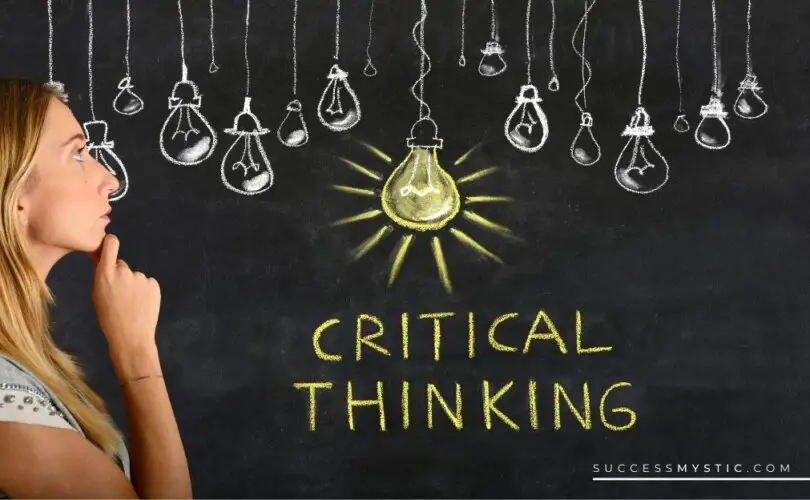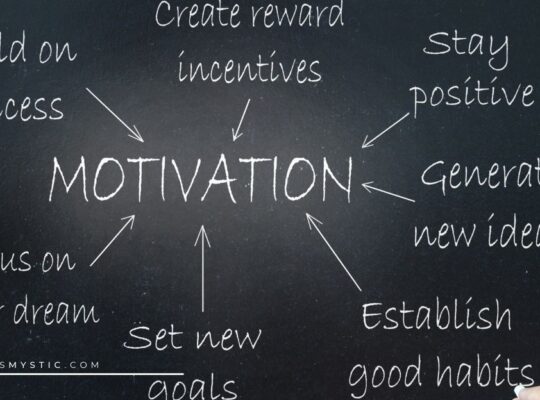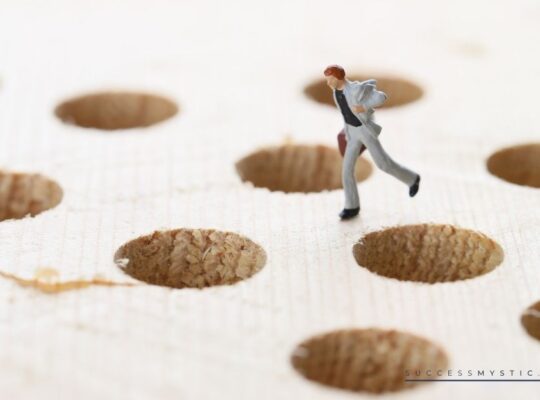While you may consider critical thinking to be important to your professional or even academic life, you should also consider how this essential life skill can support your personal development and the pursuit of your life’s goals and dreams. Critical thinking is an important component to your cognitive development that can enhance your relationships, your ability to attain your goals in life, and to your understanding of yourself.
Let’s first examine what we mean by critical thinking, then consider how these thinking skills can enhance your personal development. Next, we’ll examine the specific skills necessary for critical thinking, and finally, we’ll provide you with some specific activities that can help you develop your own critical thinking skills.
Understanding Critical Thinking
What exactly do we mean by critical thinking? Critical thinking is defined as your ability to think rationally and clearly and to understand the logical connection between ideas and concepts.
Critical thinking has been a topic of discussion since the time of Plato, and modern scholars and educators have continued to emphasize the importance of these thinking tools in personal growth and development.
In addition to logical thinking, critical thinking also involves reflective thought as well as the ability to think for one’s self. When you think critically, you are actively engaging in cognition rather than being a passive recipient of input.
Instead of being just one skill, critical thinking involves a whole range of processes, including:
- Rigorously questioning the ideas and assumptions of others.
- An openness to finding new perspectives on an idea.
- Reliance on identification and analysis to solve problems, rather than instinct or intuition alone.
- The understanding of how ideas are connected.
- Determining the relevance and importance of ideas and arguments.
- Reflection on their own beliefs, values, and assumptions.
- Consistent and systematic approaches to problems.
- The ability to recognize, form, and evaluate arguments.
- How to identify the inconsistencies and faults in reasoning, both for oneself and others.
Now that we have a better understanding of what critical thinking is, let’s consider how these skills can help you develop personally.
Why Critical Thinking Important To Personal Development
Most people consider critical thinking to be an academic skill that mostly benefits scholarly or professional work, but there are many benefits to your personal growth and development, as well. Let’s look at the top reason that critical thinking can benefit your personal development.
1| Better Able To Solve Problems
Thinking logically and using your reasoning allows you to consider all the possibilities when it comes to solving problems in your personal thought. Critical thought helps you take the emotion out of decisions and instead just examine the evidence to support your various options. When you are able to think critically, you can select better solutions that are likely to help you reach your goals sooner and more easily.
Critical thinking helps you determine solutions and alternatives, assists you in recognizing potential obstacles and how to overcome them, and even prevent problems from happening. Wouldn’t it be great if we could think clearly and into the future to help us prevent problems from even happening?
2| Be Better Informed About Issues and Information
Critical thinking can help you make better decisions because you learn to appreciate facts, diverse perspectives, and evidence as a basis for your beliefs and ideals. Critical thinking skills are what help you make better analysis, determine facts from opinion, and evaluate the legitimacy of information, all of which are key to making decisions that are truly beneficial to you.
3| Form Healthier Relationships with Others
When you have skills of critical thinking, you can better analyze the reasons for interpersonal strife, think more objectively about the differences you may have with those for whom you care, and improve your communication with family and friends. When you think and communicate using logic and reasoning, as opposed to only using emotional responses, you can focus on the purpose for the conversation, reduce the need to argue, and learn to appreciate what others bring to the discussion.
Critical thinking also allows you to focus on your behavior, including its impact on your partner, family members, or friends. Reasoning and logic can help you express your needs more clearly, advance your understanding of others’ viewpoints, and develop a stronger connection to those for whom you care deeply.
4| Reach Your Life Goals More Easily
When you utilize your critical thinking skills, you are more likely to be able to set goals, identify pathways to reaching those dreams, and set yourself on a path for achieving everything you desire.
These skills are instrumental in helping you determine sub-goals that are necessary for helping you achieve, discovering other personal development aims that are necessary for helping you succeed, and devising plans of action in the face of setbacks and failures.
In short, critical thinking can be immeasurably beneficial to your personal growth and development, and you should consider ways to develop these skills in your life. Let’s look a little more carefully at the various skills necessary for true critical thinking, and then we’ll see how we can more effectively develop these over time.
Key Critical Thinking Skills
To think critically, you must use many different skills that complement each other. From observation to analysis, interpretation to reflection, solving problems to making decisions, critical thinking using a variety of thinking skills together to create the logic and reason necessary for critical thought. Here are just some of the skills needed to think critically:
- Objective and critical thought on a topic or issue
- Identification of different arguments on a particular topic
- Evaluation of a specific point of view to determine its strength and validity
- Recognition of the weaknesses or fallacies for a particular argument or point of evidence
- Understanding of the implications for various perspectives or arguments
- Creation of logical reasoning for an argument or perspective
Critical thinking is not something we do all of the time, or even most of the time, in our daily lives. When we are extremely emotional, for example, chances are high that very little critical thinking is happening. You can, however, learn to use these skills in more and varied situations, allowing you to improve your critical thinking skills and apply them in more of life’s many situations.
There are also some things that can interfere with the decision-making process and our ability to think critically. From our ingrained likes and dislikes, our personal preferences and previous experiences, as well as the learned biases we bring with us through life, the very things that make us human and unique can also disrupt critical thinking.
To combat this, it is important to be aware of them, and to consistently make efforts to use critical thinking in spite of them. The more clearly you are aware of these and your own faults and weaknesses, the more focused your work toward improving critical thinking can be.
But, how, exactly do you develop critical thinking skills at any stage of your life? Isn’t this like intellectual ability, something you are born with? The short answer is, “No!” All of us can learn to think more critically, no matter our age or stage in life. Let’s look at how you can start learning new critical thinking skills today.
9 Strategies For Developing Critical Thinking Skills
Improving your critical thinking skills is just like improving at any other skill, like playing an instrument or performing in a sport. It takes a commitment to learn, conscious practice, and persistence toward improvement.
And just like sports or musical ability, thinking skills take time to develop gradually. You will not miraculously develop critical thinking skills overnight, or even over several weeks. It takes time and attention to develop these skills.
So, how do you develop into a more critical thinker? What can we do every day to practice and hone these habits of mind that allow us to think more critically? The following are nine strategies you can practice to learn to think more critically. The more you practice these and others like them, the easier it will be to deploy the habits of mind learned when you need them most.
None of these are absolute in their implementation, but instead, you can start today to use each as regularly as possible, and soon, you’ll notice you are naturally thinking more logically and rationally in your daily life.
1| Tackle A Problem Each Day
Every day choose a problem to contemplate in your free moments. This can be while you are getting dressed in the morning, while you are commuting to work, or while you are working out.
Select something in your life or in society, then systematically think through the problem to identify its elements. What is the problem, exactly? Put it in the form of a question, then consider how this problem relates to your personal needs, goals, and beliefs.
Be as precise as possible when stating the problem. Don’t conflate one problem with another, instead examine each separately, and only work on one problem at a time. Decide the type of problem you are facing. Is it something over which you have control, or something that you cannot influence? For now, focus only on problems over which you can exert some influence or potentially solve.
Next, consider what information you need in order to solve this problem. You should be able to actively seek out this information. After collecting this information, seek the information needed, then carefully analyze what you learned. Draw reasonable inferences from this data, then figure out what options you have for solving this problem.
Are there things you can do now, or sometime in the future, that will eliminate this problem? Again, look for things you can do, not things that are out of your control. An important part of critical thinking is being aware of your own limitations.
Evaluate the advantages and disadvantages to each possible solution, including how they may impact yourself and others. Select one approach to solving your problem, then follow through on that strategy as quickly as you possibly can. While some solution may work immediately, others may require a more wait-and-see approach to solutions.
Finally, watch the implications of your solution after implementation. Revise your strategy as needed to meet unexpected demands or results, and practice analyzing your solution from many angles as more information is learned.
This daily problem does not have to be large in scale nor significant in its outcome. The idea is to practice the habits of mind on a smaller scale, so you know better how to use them when the problems have more importance.
2| Use Your Time More Wisely
There is, in any given day, a great deal of wasted time. Some is wasted on diversion, other is wasted by outside forces. Poor planning can cause wasted time, as does undue worry, regret, and plain laziness. This strategy is all about taking advantage of this wasted time to practice your critical thinking skills.
Even when you are not able to use your time more wisely, you can still take advantage of the time created to practice your newly-sought-after skills. Let’s look at an example of taking better advantage of the time you have.
Let’s say you neglected to plan ahead this morning and are now stuck in traffic on your way to work. Instead of sitting in your car, fuming at the other motorists or kicking yourself for pressing that snooze button too much, instead use this time to look back on the previous day and consider your strengths and weaknesses as it relates to your actions and accomplishments.
- What did you do well yesterday?
- In what areas did you struggle? During what parts of the day was your thinking the clearest and most productive, and when was it the least focused?
- How well did you do at setting your emotions aside and using logic and reason to make the best possible decision?
- What did you do yesterday that best reflects your values, and where do you fall down in this area?
Take some time with each question, carefully considering all aspects of your personal and professional life. You may even want to record your observations. If you are driving, as in the above example, you could talk into a voice recording app, instead of trying to write.
Be as specific as you can in your observations and analysis of yesterday’s events, explicitly recognizing as many things about yourself as you can. You will notice patterns over time if you do this exercise regularly.
3| Keep A “Thinking” Journal
You can use a journal to document specific moments in your life as well as analyze your response to this situation. Try to write at least two entries per week and focus on following the same format each time. Each entry should include the following:
- A detailed description of an emotionally significant situation. Select something you care deeply about, and write down what happened, when, who was involved, and as many details as you can recall.
- A specific and exact accounting of your response. What did you do, how did you feel, what were you thinking?
- Next, analyze the situation using what you have written. What was going on, and how did you handle it? Look for insight beyond the obvious.
- Assess yourself. What have you learned about your handling of this situation? How will you apply this learning in the future? If you could go back in time, what would you do differently in this situation?
4| Practice One Intellectual Standard Each Week
If you are interested in developing logic and reasoning skills, you should know about the universal intellectual standards, which must be applied in order to test reasoning of an issue, problem, or situation.
These standards all combine to create what we think of as critical thinking and practicing each can teach you how to think more critically.
The universal intellectual standards include:
- Clarity
- Precision
- Accuracy
- Relevance
- Depth
- Breadth
- Logicalness
- Significance
Each week, select an intellectual standard, notice how you are using it throughout your week. For example, when your focus is on clarity, pay particular attention to how clear (or unclear) you are in your communications with others.
Pay attention to when others are being unclear with you and analyze what makes their communication unclear. Include all facets of your life, from professional to personal, and focus on how to make yourself clearer in every situation.
Focus on one trait at a time and spend an entire week on that trait. When you have finished them all, return to the first and start the rotation over. What has practicing the others done to improve your ability in each of the standards? How does each relate to the others?
5| Focus On 30-Day Character Goals
Each month select one character trait you would like to bolster that will help you in your quest for better critical thinking. Traits can include courage, perseverance, empathy, or autonomy, for example. Start with observations about when this character trait is strong in you, and when it lacks strength.
When you start to recognize areas of weakness, develop a strategy for improving that trait during similar situations. Stay focused for 30 days, the time it takes to develop a new habit, on one character trait, allowing yourself to first become aware of this trait in yourself and then to become stronger in your ability to exhibit and personify this trait in all types of situations.
6| Get in Touch with Your Emotions
Emotions are what often interfere with our ability to think critically in situations that mean a lot to us. Getting more in touch with your emotions, what sparks them, how they make you feel, what consequences you see from your strong emotions, etc. can help you preempt emotional responses in favor of more logical ones.
Use your critical thinking skills of observation and analysis to record what led up to a negative emotion, what you could have done differently in response to strong emotions and concentrate on being able to do this in the moment, not just after the moment has passed.
7| Get Outside Yourself
We all have some level of egocentric thinking, which means we automatically favor ourselves when it comes to making decisions or selection options. But, becoming aware of your own bias toward yourself can help you step outside that egocentrism and use more rational judgment. Here are some questions to ask yourself to increase your awareness of your egocentric thoughts.
- When do I favor myself over others in my life? In what situations is this most evident?
- Under what circumstances do I behave irrationally in order to get my way?
- When do I try to impose my own will upon others?
- Have I ever felt resentful for not speaking my mind to someone else?
This identification of your bias is the first step, and then you can work toward replacing these thoughts with others that are self-reflective and consider others’ thoughts and needs. This allows you to become more rational in your decision making.
8| Consider How Groups Influence You
All groups to which you belong either encourage you to believe something or discourage your belief in something. Think about all the groups of which you are a part.
What behaviors does each encourage and discourage?
What beliefs are upheld in each, and which are forbidden? Groups enforce conformity in some way or another, and we often subscribe to the views of others in these types of groups.
Are any of your groups exerting influence over you that you bow to, or are there ways you can reject the pressure you feel from certain groups in your life? When do you act most yourself, and when do you pretend to get along? How can you subtly and not-so-subtly reject group influence and think more for yourself every day?
9| Look For Other Ways Of Seeing The Situation
There’s an old saying that, for any situation, there’s your version, my version, and the truth. And reality is somewhere in between all that. In every situation in your life, there is always another way to consider the events and your decisions.
When you consider this, you realize there are many opportunities to turn negative situations and perceptions into positive ones, if we just learn to look at things a little differently.
To practice this, look for ways to redefine how you see things in your life, turning negative aspects into more positive one. Mistakes are opportunities to learn, and patterns present great opportunities for examining places where maybe a change of perspective is in order. Practice looking for plausible alternatives that would change a negative into a positive for you. You can do this in nearly all aspects of your life.
When selecting and practicing the strategies recommended here, remember that you are doing a personal experiment, and the only test that matters is if it is helping you grow and think more critically. When you start to practice these skills, you will likely notice there are ways to integrate them together. You can select any as a starting point, whichever is more comfortable and natural for you, and you can practice any that is uncomfortable for you as many times as needed to help you develop confidence.
As you practice these skills, you will likely notice a shift in how you observe, interact with, and respond to the world. You will recognize how your own behavior is defined by the expectations of the situation and others, and you can consciously choose to acquiesce or behave contrary to the norm. You will even start to develop your own definitions and expectations that may run contrary to the norm.
You will also start to see the connections between your emotions and your ability to think rationally and logically. Once you notice this, your responses to strong emotions are likely to shift as well, as you recognize that these emotions do not need to guide your rational thought.
Final Thoughts
Critical thinking is your ability to think rationally and clearly. It includes how will you understand the connections that link ideas and concepts logically, and it the integration of many different habits of mind and thought processes into one, cohesive approach to problem solving and decision making.
Overall, it takes time, practice, dedication, and focus to develop critical thinking skills, but the benefits to your personal development are immeasurable. You will see improvements in your achievement of goals, in your relationships with others, and overcome obstacles and setbacks with ease.
Critical thinking is an intellectual toolkit that can help you solve not only professional and academic problems but also help you achieve your personal goals and aspirations. Without the ability to think critically, you are using false information to make decisions in your life, and you will not have the ability to analyze problems to determine the best solutions, leaving you stuck.
Learning to think critically is something we all can do, given the right focus and attention. If you are ready to improve your critical thinking skills, you must select one strategy every day on which to focus, and you should keep track of how well you are using your new skills, when you struggle to maintain them, and in what situations you benefited from using them.
Don’t wait. Get started today developing your critical thinking skills, and before you know it, you will notice dramatic changes in your personal growth, as well.







